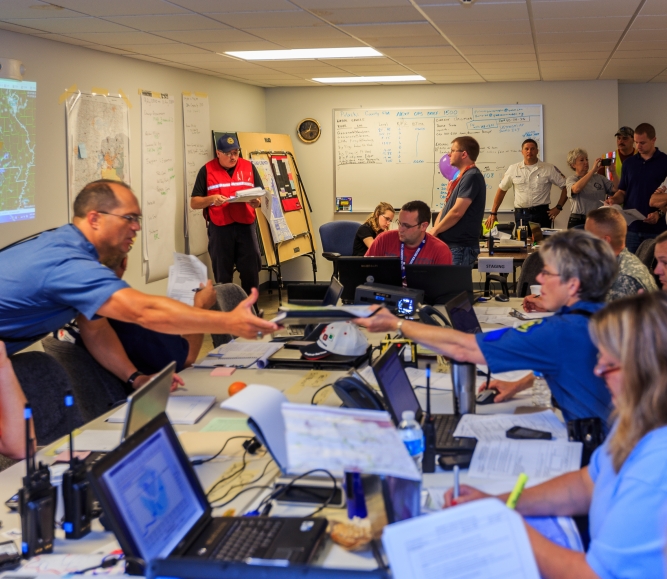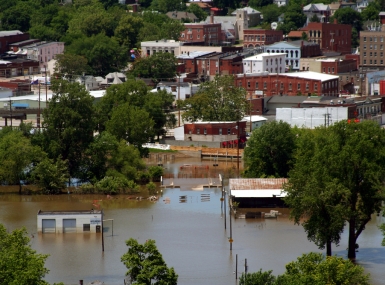Resilient Counties Initiative

Hurricanes, wildfires, economic collapse and other disasters can be natural or man-made, acute or long-term, foreseeable or unpredictable. Preparation for and recovery from such events requires both long-term planning and immediate action.
NACo works to strengthen county resiliency by building leadership capacity to identify and manage risk, and allow counties to become more flexible and responsive. Through the use of sustainable practices and infrastructure, counties will be better prepared to address these issues in a manner that can minimize the impact on local residents and businesses, while helping counties save money.
Through the initiative, NACo:
- Develops strategies to foster economic growth and competitiveness;
- Educates counties on techniques for implementing resiliency and sustainability strategies;
- Provides tools for counties to educate their communities on resiliency initiatives;
- Identifies ways to leverage changing conditions and take advantage of new technologies and innovation; and
- Facilitates an open exchange with the private sector.
Resource
Emergency Management in County Government: A National Survey

Resource
Intergovernmental Roles and Responsibilities in Disaster Resilience

Stay Up-To-Date on the Resilient Counties Initiative
Program Contact

Jennifer Kuiper
Program Director, Economic & Workforce Development
Sponsors
















